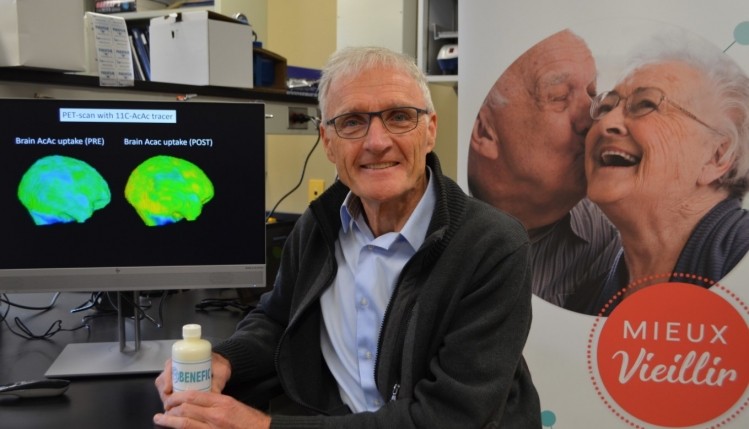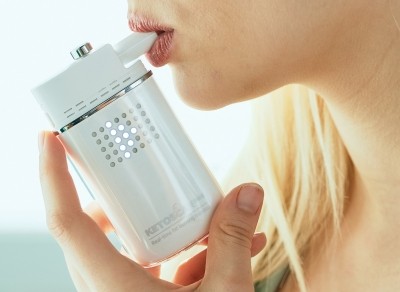Ketogenic drink boosts brain in cognitively impaired, says Nestlé study

The study's Canadian research team concludes the drink improves cognitive outcomes in MCI by increasing blood ketone level. These data support further studies looking at the drink’s role in slowing down Alzheimer's disease (AD).
“Identifying significant improvement in cognitive function in patients with MCI is an exciting development that gives us great motivation to stay on this research track,” says BENEFIC trial principal investigator Professor Stephen Cunnane, from the University of Sherbrooke.
“This is only the beginning and the hope is that new innovations can be found to not just boost brain function, but to slow down progression to Alzheimer’s disease and other forms of cognitive decline linked to ageing.
“These results should significantly improve the quality of life for people living with Mild Cognitive Impairment.”
Boosting energy resources to the brain may well be a way to reduce cognitive decline in mild cognitive impairment (MCI) and Alzheimer's disease (AD) based on a number of observations, one of which sees the normal uptake of brain ketones in both MCI and AD patients but lower brain glucose uptake in MCI.
The improvement in brain energy status by ketones correlates positively to improved cognitive outcomes, suggesting a link between improved brain energy status and improved cognitive function.
Study details
Along with colleagues from Nestlé’s Institute of Food Safety and Analytical Sciences, the team enrolled individuals into either the study group (drink containing ketogenic medium chain triglyceride; 15 grams (g) twice/day; n=39) or placebo (n= 44).
The kMCT drink was a 12% emulsion of Captex 355 (60% C8, 40% C10) in lactose‐free skim milk. The placebo contained high‐oleic acid sunflower oil as a calorie‐equivalent non‐ketogenic vegetable oil.
Cognition, plasma ketone response, and metabolic profile were assessed before and six months after supplementation.
Results revealed the kMCT drink improved three domains—executive function, memory, and language.
Higher plasma ketones correlated positively with changes on four cognitive tests, while plasma metabolic profile and ketone response remained unchanged after six months of kMCT.
The efficacy, safety, and tolerability findings suggests testing kMCT as a potential approach to delay progression to Alzheimer's disease.
“Using a variety of tests and neuroimaging, we were able to observe the ketones used by the brain and to demonstrate improved cognitive performance in the participants who consumed the beverage,” comments Professor Cunnane.
“These results could significantly change the quality of life of people living with mild cognitive impairment (MCI), a phase that can precede Alzheimer's disease.
“There has been no treatment for MCI until now, which means that this a world first achieved completely in Sherbrooke."
Ketone use in MCI & AD
In discussing the findings, the team point to their earlier research that showed in MCI and AD cases the brain retains a normal capacity to use additional ketones when they are available.
“Free (unesterified) C8 and C10 in blood are precursors to ketone formation by the liver but can also enter and be directly metabolized by the brain,” the team writes.
“Hence, it is also possible that C8 and C10 have a direct effect on brain energetics and function without necessarily being first metabolised systemically to ketones.”
They go on to say that no drugs are approved for MCI and drugs used in AD do not delay cognitive decline in MCI.
“Nevertheless, the current positive results with kMCT and those with exercise, suggest that by improving brain energetics, cognitive outcomes can be improved in MCI.”
“Slowing progression toward AD during the MCI phase by one or more years could result in meaningful improvements for the patient and substantial savings for society.”
Source: Alzheimer’s and Dementia
Published online: https://doi.org/10.1002/alz.12206
“A ketogenic drink improves cognition in mild cognitive impairment: Results of a 6‐month RCT.”
Authors: Mélanie Fortier et al.
©iStock/















